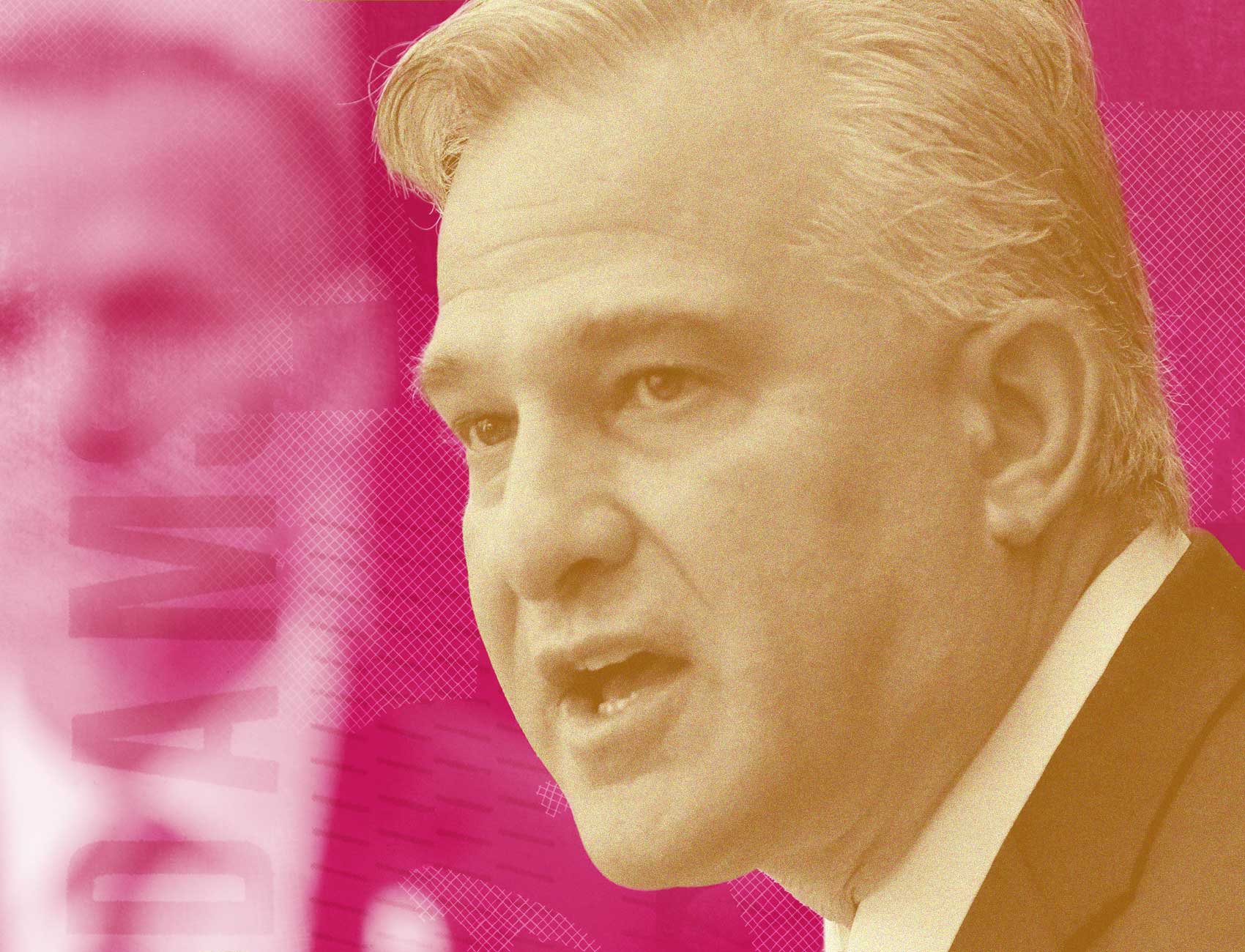A Trap Of Low-Level Drug Arrests And Court Debt In Pittsburgh
In 2017, Allegheny County District Attorney Stephen Zappala prosecuted more than 1,700 low-level drug possession cases. More than $2 million in court-imposed debt was levied on people who were charged in these cases.

Nathaniel Tomczak was leaning against a wall outside a light rail station in Pittsburgh when police approached him on May 2, 2017. Tomczak had just smoked synthetic marijuana and he appeared to be visibly intoxicated, according to an arrest report written by Port Authority police officer Alex Warren.
Warren asked Tomczak for identification. When Tomczak pulled out his wallet, Warren found two strips of sublingual suboxone, a prescription medicine that is used to treat people with opioid use disorder. Warren arrested Tomczak and charged him with misdemeanor possession of a controlled substance.
About two weeks later, Port Authority police officer William Luffey stopped Michael Wettlaufer for loitering outside a Pittsburgh bus stop.
In an affidavit of probable cause, Luffey wrote that the bus stop was a “high crime area” where he had previously made “hundreds of arrests.” Luffey found that Wettlaufer had an outstanding warrant for misdemeanor possession of marijuana and arrested him.
Wettlaufer told Luffey that he had a few Xanax pills in his boxer shorts. Luffey then charged Wettlaufer with misdemeanor possession of a controlled substance.
Low-level drug arrests are common in Allegheny County: On any given day, police arrest more than a dozen people for misdemeanor drug possession, according to the Pennsylvania Uniform Crime Reporting System.
The Appeal reviewed roughly 30,000 criminal dockets filed in the county in 2017 and found that more than 1,700 misdemeanor drug possession cases were referred to Allegheny County District Attorney Stephen Zappala’s office for prosecution. The review includes all criminal cases entered in the Unified Judicial System of Pennsylvania that were not expunged or sealed before The Appeal collected the records.
Zappala’s office sought a conviction in more than 90 percent of low-level drug cases referred to his office, The Appeal found.
Most of the cases did not result in people being sentenced to jail or prison, although Black people were more likely to be sentenced to jail than white people. Most of the people charged were either sentenced to probation or ordered to pay fines, fees, and costs only.
The Appeal also found that people charged with low-level drug crimes in the county had more than $2 million in court-imposed debt placed on them in 2017 alone.
Zappala’s office did not respond to multiple requests for comment from The Appeal.
The practices of Zappala’s office stand in stark contrast to a growing movement among district attorneys, like Rachael Rollins in Boston, Joe Gonzales in San Antonio, and Dan Satterberg in Seattle, who are declining to prosecute drug possession cases and shifting resources to more serious crimes.
“This is just a gross misallocation of resources,” said Leo Beletsky, a professor of law and health sciences at Northeastern University and faculty director of the Health In Justice Action Lab. “If you talk to [police and prosecutors] one on one, they will rightly tell you that [prosecuting low-level drug cases] is shoveling shit against the tide. This is a futile exercise.”
Court-imposed debt also weighs heavily on people charged in minor drug cases. Failure to pay these debts can result in probation revocation, incarceration, or driver’s license suspension. In 2017, more than 120,000 people in Pennsylvania had their driver’s license suspended for failure to pay fines and fees or failure to appear for court.
Both Tomczak and Wettlaufer ultimately entered guilty pleas to misdemeanor drug possession, were sentenced to probation and ordered to pay more than $2,000 each in fines, fees, and costs.
Beletsky said the costs of these prosecutions could be far better used on social services; arrests also increase the likelihood of overdose because people go through detox and experience withdrawal while incarcerated. This causes the person’s tolerance to decrease and can turn what was a normal dose before their incarceration into a fatal dose after.
Zappala’s aggressive prosecution of low-level drug cases also appears to be doing little to reduce recidivism.
Nearly one-third of the people prosecuted for low-level drug possession in 2017 were rearrested and charged with new criminal offenses by Zappala’s office in 2018, including Tomczak and Wettlaufer. Nearly half of those new arrests were for drug charges.
Zappala, a Democrat, faces a contested election in November for the first time since he took office in 1999.
He is running against public defender Lisa Middleman, an independent who started her campaign in June. Middleman is running on a progressive platform that includes diversion for low-level drug cases, and suspending fines and fees for people who receive public assistance or are represented by the public defender’s office.
She told The Appeal that if elected she would push to decrease the grading of drug possession from a misdemeanor to a summary offense, and that she would also institute a program allowing people to avoid the criminal legal system if they enter into inpatient or outpatient treatment.
“We want people to get treatment,” Middleman said. “We want people to be whole. We want people to be contributing members of society” instead of being forced into a cycle of poverty by the criminal legal system.”
